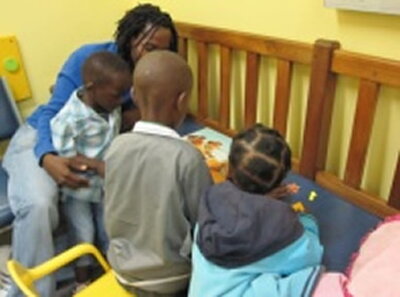
By Jan Brooks, Human and Community Development
Unofficially I call this topic “What I Have Learned about Parenting Styles and Child Guidance in Historical and Cultural Contexts in South Africa." I spent a month in Cape Town May and June 2011, in response to an invitation by Dr. Jawaya Shea of Red Cross Memorial Children’s Hospital and The University of Cape Town Child and Public Health Unit. I was to assist her in writing curriculum for training sessions for parents and foster parents of HIV positive and chronically ill children, and to support emotional development as well as social decision-making as children grow from early childhood to adolescence.
Though I began to build curriculum based on theories of Erikson, Piaget, and Vygotsky, which define the basis of nurturing child care practice and early education here at home, I found it necessary to familiarize myself in greater detail with contexts of family living arrangements in the townships. I looked at daily challenges, respect for teaching of elders in the community and family, and existing attitudes about child guidance of the families living in the area and taking part in the training sessions. They were predominantly from the Xhosa communities near Cape Town, still impacted by the legacy of apartheid two decades after its demise.
We sought the assistance of a Xhosa-speaking graduate student in Child Psychiatry at the University of Cape Town, local families, and the parents involved in the project themselves. Usefulness of the curriculum was ascertained through the training, and its use in training sessions began with parents recruited through the HIV clinic at Red Cross as well as NGO Fertile Ground, which offers summer camp experiences for chronically ill children, where parents are invited for the training at an end-of-camp weekend program. Dr. Shea continues to use the curriculum and further develop meaningful contexts for the parents who attend the training sessions. She hopes to see evidence of positive outcomes in the children’s emotional stability and interaction with family and peers as a result of the training. Implications for the future indicate broadening the use of the curriculum in hospitals, clinics, and perhaps the public health system.
This experience has positively impacted my teaching and thinking about child development. I believe examining child guidance globally will bring about broader ways of thinking about guidance practice, producing a better understanding of our families and our educational systems.
